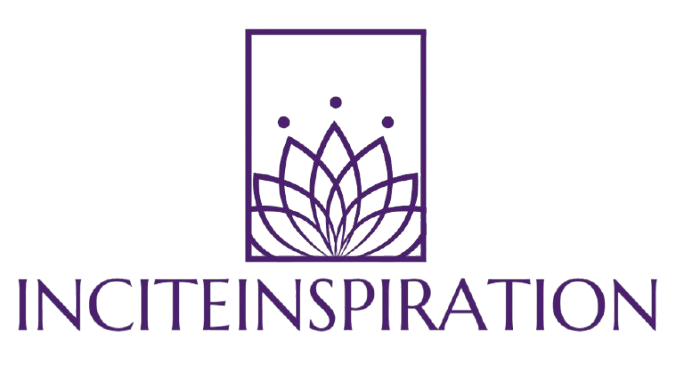Most mornings, before the world has a chance to pull me in a thousand directions, I settle into the same quiet ritual. Coffee in hand, journal open, AirPods in, I write my way through yesterday — brushing away the mental clutter and making space for today. A few deep breaths, a moment of prayer, and a glance at my calendar later, I jot down the three things I want to focus on. It’s simple, unhurried, and always leaves me feeling calm by the time the rest of my household wakes up.
I used to think that being organized was about productivity — about finding ways to squeeze more into an already full day. My calendar was crammed with appointments and tasks, each spare moment plugged with another obligation in the name of efficiency. But the more life unfolded, the more I realized: the real value of organization isn’t about getting more done. It’s about creating room to actually live.
At its best, organization isn’t a rigid system of lists and reminders. It’s a framework for making space — space to breathe, to notice, to connect. And when you start approaching it from that perspective, something shifts. Life starts to feel less like a race, and more like something you’re actually part of.
Keep It Simple: Less Is Truly More
People often ask how I manage to “do it all,” and the honest answer is: I don’t. I’ve learned to be selective about what I allow into my days. Complexity isn’t the goal; clarity is. For me, the secret to staying organized is about weaving in a few grounded, repeatable practices that help me focus on what matters most.
I think about these practices in three layers: daily, weekly, and monthly. They aren’t fancy or complicated, and most of them don’t take much time. But they’re the scaffolding that holds the rest of my life together — keeping me balanced, creative, and, most importantly, present.

Daily Practices: A Morning Reset
My morning routine is my personal anchor, the part of my day that never feels negotiable. It’s not about perfection — some days I only manage five minutes, others I stretch it into an hour — but the simple act of showing up for myself, first thing, changes everything.
- Journaling: I treat my journal like a conversation with myself. Sometimes I reflect on the previous day, sometimes I free-write until something meaningful surfaces. It clears mental space and sharpens my focus for the day ahead.
- Prayer and Reflection: A few minutes of stillness to ground my intentions. Whether it’s a gratitude list or a quiet conversation with God, this pause always shifts me out of autopilot.
- Vision Check-In: My version of a vision board is less about future achievements and more about present-day reminders — photos, phrases, and ideas that inspire me to slow down and savor life’s ordinary beauty.
- Top 3 Priorities: Every morning, I write down three things I want to focus on. That way, even when life gets busy (and it always does), I know what deserves my energy.
Weekly Practices: Intentions Over To-Dos
Sunday evenings have become sacred to me. It’s the time I pull back from the noise of the week and realign with what matters. I light a candle, open my notes app, and map out the week ahead — not just with tasks, but with intention.
I divide the week’s plan into three simple sections:
- Big Picture Goals: What needs meaningful progress this week? These are the projects, relationships, or challenges that matter beyond the day-to-day hustle.
- Tactical Steps: These are the smaller action items that help move the big goals forward. A clear, tangible list so nothing gets lost in the shuffle.
- Prayers and Surrender: I write down anything that’s weighing on me — the things I can’t control — and symbolically hand them over. It’s a small act of release, but a powerful one.
Throughout the week, I revisit this list each morning when I write my “Top 3.” It’s a subtle way of keeping my focus on what I’ve already deemed meaningful, rather than getting swept away by distractions.

Monthly Practices: Realign and Refresh
It’s easy to set goals at the start of the year, but staying connected to them? That takes intention. I’ve learned that if I don’t check in regularly, the things that matter most can quietly slip away in the busyness of life.
On the first Sunday of every month, I schedule a mini “alignment” session with myself. Sometimes it’s at home with coffee; sometimes I take myself out to a café. I reflect on the month behind me and the month ahead:
- Review: I revisit my yearly intentions and check whether my calendar reflects the life I want to create.
- Reflect: I scan for gaps. Am I making time for the people and projects that fuel me? Have I prioritized my health, my family, my creativity?
- Take Action: I schedule what matters, even if that means saying no to something else. A blank space on the calendar isn’t a sign to add more — sometimes it’s an invitation to rest.
Why This System Works
What I’ve learned is that organization isn’t about perfection, and it isn’t about doing more. It’s about designing your days with care, so you can live them fully. When I have practices like these to ground me, I don’t spend my days chasing after time — I make space for the things that truly deserve it.
And that, I’ve come to believe, is the real point of getting organized: not to fill every moment, but to open it up.

